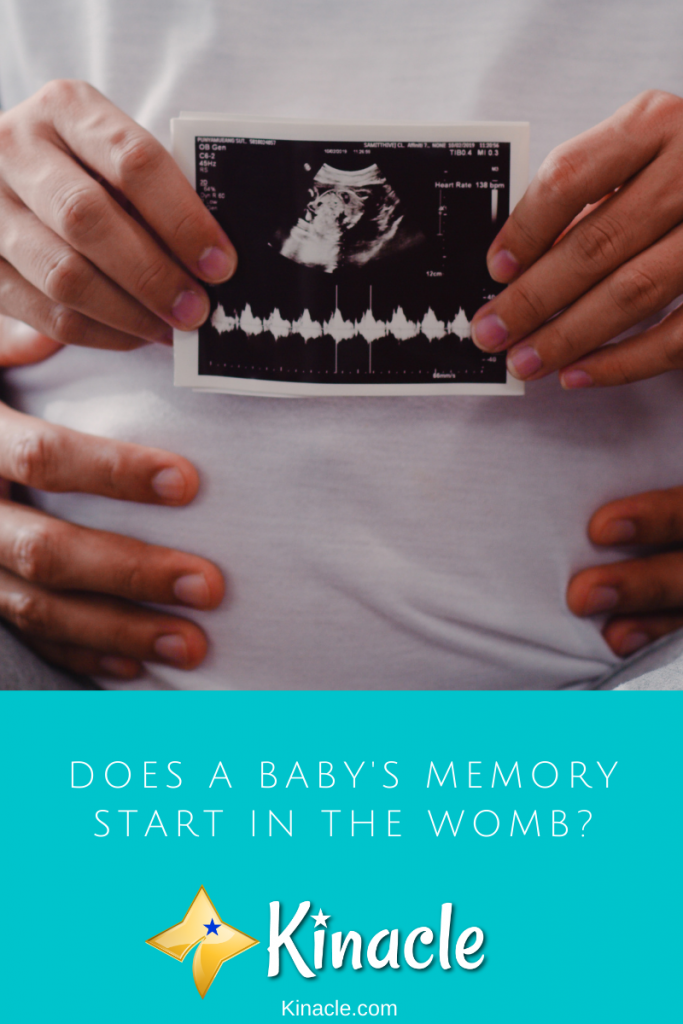
There are so many fascinating things about babies – wouldn’t you agree? Our little bundle of joy has plenty of fun surprises, especially when it comes to their cognitive development.
You might be wondering – when does their memory start? Does a baby’s memory begin to form even in utero? Here’s what researchers have to say!
Can babies hear sounds in the womb?
If your parents told you to talk or sing to your baby while pregnant, it’s a piece of advice that is backed with science.
Way back in 1988, a small study found that newly born babies became familiar with the theme songs of their mother’s favorite soap opera while pregnant. These babies tend to stop crying when the familiar tune was played. This study suggested the possibility that learning or memory takes place while babies are inside the womb – and that they’re able to hear and process external sounds.
In 1993, the controversial “Mozart effect” suggested that classical music can enhance a child’s performance in the exams. Though there is no direct correlation between classical music and brain development, an interesting fact was discovered – babies tend to recognize the songs that were played by their mothers while pregnant. Because of this, researchers are intrigued if musical training can trigger the birth of new pathways in the brain.
Can babies in the womb remember?
You’ll be amazed to see infants learn at a very fast rate, but wait until you figure out that there’s even more surprising things about a baby’s brain!
A 2009 study suggested that an unborn fetus has memories. The researchers from The Netherlands observed 100 pregnant women as they were exposed to a very low sound which they referred to as “vibroacoustic stimulation.” Via ultrasound, they observed that the fetuses startled after the first exposure to the sound. However, after repeated exposures of 30 minutes apart, the unborn babies stopped reacting to the sound. This is an indication that as early as 30 weeks of age, fetuses can become habituated to the sounds that they hear.
According to experts, habituation is a form of memory and learning wherein the brain remembers a stimulus and stops responding if exposed to the same stimulus repeatedly. This is similar to what we experience when we hear an annoying sound from the air conditioner and eventually ignore this sound later as we fall asleep.
Furthermore, this study proved that unborn babies have short-term memories. They found that fetuses who were exposed to the sound at 34 weeks of age seem to remember the sound and responded less when exposed to the same stimulus four weeks later.
This is exciting news! Mothers, fathers and relatives shouldn’t feel silly talking to the pregnant mother’s baby, as the baby can certainly hear it!
Note however that recordings taken in the uterus indicate that the sound is muffled by roughly half, and isn’t exactly crystal clear – the voice they will become most familiar with will always be that of the mothers.
Anyhow, for those who are not yet convinced, here’s more research. In 2013, one study leveled up the idea about the effects of sound exposure while the baby is still inside the womb.
This time, the experts used pacifiers that can track the reaction of newborns in response to the sounds of vowels from their mother’s native language and the vowels from a non-native language. This study involved American and Swedish pregnant women.
They found that the American newborns tend to respond less to the English vowels, signifying that they are accustomed to their native language because of repeated exposure while their mothers are pregnant. On the other hand, more vigorous sucking was exhibited when the Swedish vowels are played, signifying that they are more interested and attracted to the new sound. The Swedish babies responded the same way when exposed to English vowels.
Can babies learn while inside the womb?
While many of the previous studies support the idea that unborn babies can remember the sounds while inside the womb, the results were mostly based on infant behaviors. It was not until this study in Finland that experts had observed the babies’ real-time brain responses via electroencephalogram (EEG).
In this study, 33 Finish women were exposed to the word “tatata” from the 29th week of pregnancy until they gave birth. During the experiment, one vowel is sometimes being replaced by “o”. Since this is a pseudoword or a word that has no real meaning in the Finnish language, it is a bit challenging for the fetuses’ small brains to process the word.
So did the babies learn the pseudoword? The results of the study revealed that babies who were previously exposed to the word have heightened brain responses when compared to those who haven’t. These babies can process the words and detect the changes in the pronunciation better.
Conclusion
These scientific studies suggest that memory and learning begins inside the womb. Halfway through pregnancy, babies can process and store information based on what they hear from the environment. As parents, this tells us that talking, singing, and telling stories to babies in the womb may be extra beneficial. It may not be a complete guarantee for raising smart babies, but, surely, your little one hears your love and sweet words even before he is born.
Leave a Reply